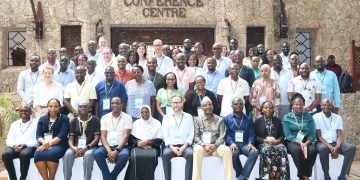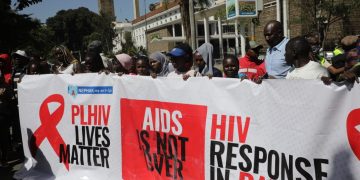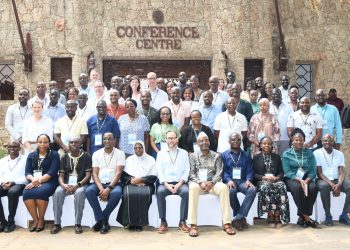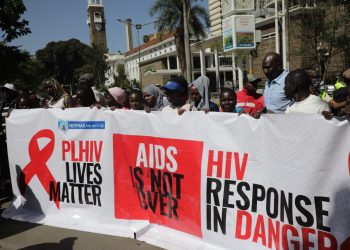The 77th World Health Assembly (WHA) annual conference agreed on adoption of amendments on crucial revisions to the International Health Regulations (2005) (IHR).
The crucial regulations’ modifications will improve worldwide preparedness, surveillance, and response to public health emergencies, including pandemics.
WHA also made concrete commitment to conclude negotiations on a worldwide pandemic accord within a year, at the most.
According to the WHA, the amendment’s major goal will ensure that all countries have comprehensive, robust mechanisms in place in order to protect everyone’s health and safety from future public health emergencies and pandemics.
The decisions mark two crucial decisions made by countries on the closing day of the Seventy-seventh World Health Assembly to build on the lessons acquired from many global health emergencies, including the COVID-19 pandemic.
“The historic decisions taken today demonstrate a common desire by Member States to protect their own people, and the world’s, from the shared risk of public health emergencies and future pandemics,” said Dr Tedros Adhanom Ghebreyesus, WHO Director-General.
“The amendments to the International Health Regulations will bolster countries’ ability to detect and respond to future outbreaks and pandemics by strengthening their own national capacities, and coordination between fellow States, on disease surveillance, information sharing and response. This is built on commitment to equity, an understanding that health threats do not recognize national borders, and that preparedness is a collective endeavour.” Added Dr Tedros.
The reasons behind WHA’s commitment to finish the epidemic Agreement within the next year is driven by countries’ strong and urgent need to prepare for the next epidemic.
“The strengthening of the IHR is intended to provide a strong drive for the completion of the Pandemic Agreement, which, once finalized, can help to avert a repeat of the damage to health, society, and economy brought about by COVID-19.”
One of the new amendments to the IHR is the inclusion of a definition of a pandemic emergency, which prompts more effective international coordination in the case of a pandemic.
The pandemic emergency definition provides a greater level of alert that builds on the IHR’s current processes, such as the identification of a public health emergency of international importance.
According to the definition, a pandemic emergency is a communicable disease that has a high risk of wide geographical spread across multiple states, exceeding the capacity of those states’ health systems to respond; causes, or is at high risk of causing, social and economic disruption, including international traffic and trade; and necessitates rapid, equitable, and enhanced coordinated international action, with a government and society approach.
In addition, there is a commitment to solidarity and equity in improving access to medical items and funding. This includes the establishing of a Coordinating Financial Mechanism to support the identification and access to financing required to “equitably address the needs and priorities of developing countries, including for developing, strengthening, and maintaining core capacities,” as well as other pandemic emergency prevention, preparedness, and response-related capacities.
Another amendment is the establishment of the States Parties Committee to facilitate the effective implementation of the amended Regulations. The Committee will be able to promote and support cooperation among States Parties for the effective implementation of the IHR; and creation of National IHR Authorities to improve coordination of implementation of the Regulations within and among countries.
“The experience of epidemics and pandemics, from Ebola and Zika to COVID-19 and mpox, showed us where we needed better public health surveillance, response and preparedness mechanisms around the world,” said Dr Ashley Bloomfield of New Zealand, Co-Chair of the Working Group on Amendments to the IHR (WGIHR), and of the Drafting Group that guided the negotiations of the package of amendments during the WHA. “Countries knew what had to be done and we did it.”
According to Fellow WGIHR Co-Chair Dr Abdullah Assiri of the Kingdom of Saudi Arabia, the modifications to the International Health Regulations increase measures for our collective protection and readiness against outbreak and pandemic emergency risks. Today’s remarkable demonstration of worldwide support for tighter regulations also gives a significant boost to the process of negotiating a much-needed international Pandemic Agreement.
A strategy was also agreed upon to finalize discussions on the pandemic agreement, with member countries agreeing to continue discussing the proposed Pandemic Agreement to promote international coordination, collaboration, and equity in the prevention, preparation, and response to future pandemics.
WHO’s Member States also decided to extend the order of the Intergovernmental Negotiating Body, established in December 2021, to finish its work to negotiate a Pandemic Agreement within a year, by the World Health Assembly in 2025, or earlier, if possible, at a special session which will be held by the Health Assembly in 2024.
“There was a clear consensus amongst all Member States on the need for a further instrument to help the world better fight a full-blown pandemic,” said Ms Precious Matsoso of South Africa, Co-Chair of both the Pandemic Accord Intergovernmental Negotiating Body (INB) and the Drafting Group on the INB and IHR agenda items at the WHA.
“Today’s great result in approving amendments to the International Health Regulations will provide the momentum we need to finalize the Pandemic Agreement. We clearly have the will, the purpose and now the time needed to complete this generational agreement.” Said INB Co- Chair Roland Driece, from Netherlands














